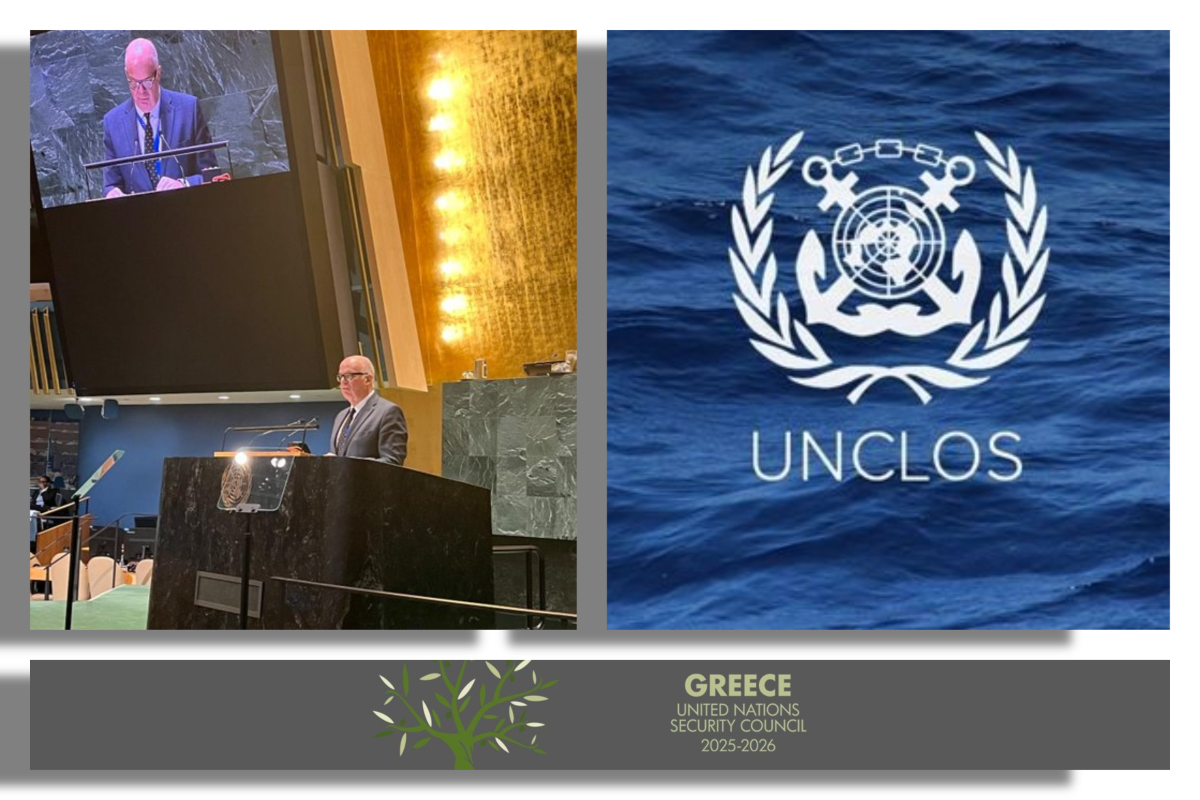On December 12, the 79th United Nations General Assembly adopted the “Oceans and the law of the sea” Omnibus Resolution, by a recorded vote of 152 in favour to one against, with two abstentions. This Resolution emphasizes the importance of preserving the ocean and equipping future generations to live in harmony with this critical, life-sustaining resources.
The Resolution stands on a solid legal foundation, that of the “United Nations Convention on the Law of the Sea” (UNCLOS), adopted in 1982 and ratified by 168 signatory parties. This pioneer Convention (put in force in 1994) regulates all uses of the seas and establishes a legal framework for international ocean governance. More specifically, the provisions of the convention embody customary international law and are therefore obligatory for all States, regardless of their accession to the Convention.
Addressing the General Assembly’s debate on the Resolution, on December 10, the Greek Mission stressed the vital contribution of international collaboration in the field of maritime security, which should cover all aspects, starting from environmental challenges and coastal management to modern piracy and sovereign rights infringement in national maritime zones.
The Greek side highlighted the significance of synergies with International Organisations, such as the IMO (International Maritime Organisation) and underscored the need for the BBNJ Agreement (Marine Biodiversity of Areas beyond National Jurisdiction) to soon enter into force.
Did you know?
Maritime Security constitutes one of Greece’s six main priortites for its term as an elected member on the United Nations Security Council. In April 2024, the country hosted the 9th Our Ocean Conference. With over 3,500 participants from 130 countries and international organisations, the 9th “OOC” concluded with 469 new commitments worth over an estimated $11 billion.

